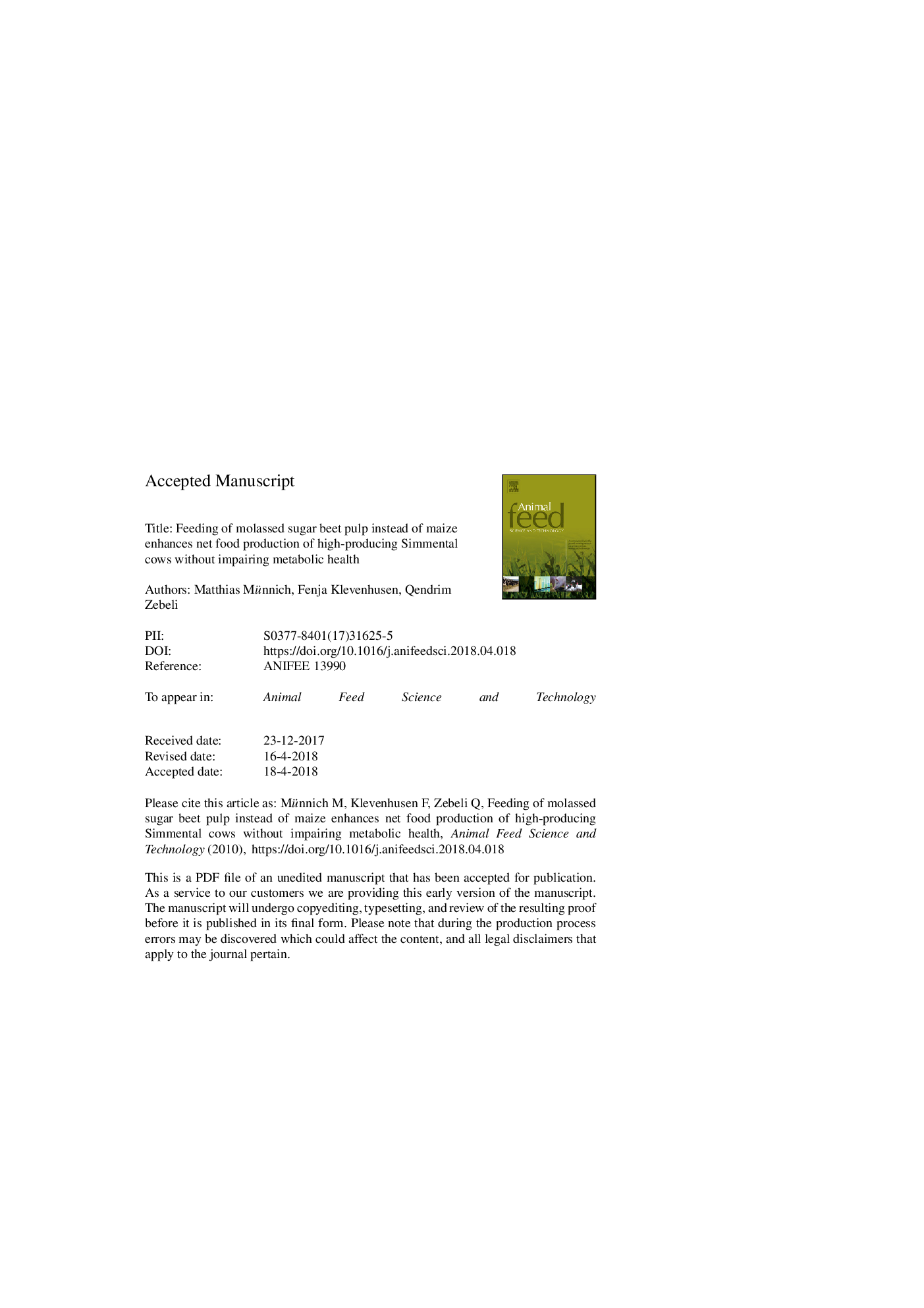| Article ID | Journal | Published Year | Pages | File Type |
|---|---|---|---|---|
| 8490933 | Animal Feed Science and Technology | 2018 | 28 Pages |
Abstract
Molassed sugar beet pulp (Bp) is a human inedible by-product of the sugar industry being a suitable dietary energy alternative to grains particularly in terms of increasing the net food production efficiency of high-producing dairy cattle. However, there are concerns that feeding large amounts of Bp can limit cow's feed intake, jeopardizing both the production performance and metabolic health especially of high-producing dairy cows that have high energy needs. In the present study dietary inclusion of Bp as a substitute for maize grain was tested in a longitudinal block-randomized experimental design in early lactation high-yielding Simmental cows. The Bp inclusion rates were 0â¯g/kg (i.e., no Bp inclusion as control), 120â¯g/kg (12Bp), or 240â¯g/kg (24Bp) on a dry matter basis. The replacement of maize grain with Bp reduced the human edible input from 135.4â¯MJ GE/d in the control diet to 50.7â¯MJ GE/d in the 24Bp diet (Pâ¯<â¯0.001). Feed and energy intake (Pâ¯=â¯0.693), milk yield (Pâ¯=â¯0.457) as well as energy corrected milk (Pâ¯=â¯0.425) were maintained constant throughout the trial. As a result dietary inclusion of Bp turned a net food loss with feeding the control diet into a net food gain with dietary inclusion of 120 and 240â¯g/kg Bp (Pâ¯<â¯0.001). The energy balance and blood metabolites were unaffected by the dietary treatments (P>â¯0.05), whereas dietary fibre digestibility was linearly improved (Pâ¯=â¯0.038) with Bp⯠feeding, indicating enhanced rumen health and functioning with Bp feeding. In conclusion, feeding molassed sugar beet pulp as partial substitution of maize until 240â¯g/kg is a viable alternative that can improve net food production without impairing the cows' production performance and the metabolic health status of cows while improving the digestibility of fibre.
Keywords
Related Topics
Life Sciences
Agricultural and Biological Sciences
Animal Science and Zoology
Authors
Matthias Münnich, Fenja Klevenhusen, Qendrim Zebeli,
